Understand Traditional Vietnamese Wedding Culture
GP Da Nang Wedding has take many photoshoot for many couple in wedding. So, giving grooms and their friends an explanation on Vietnamese wedding is one of the most frequent tasks we always do. Most of the time, they are aware of what it is. However, comprehending the underlying meaning is somewhat more difficult and, in some ways, incomprehensible to Western culture.
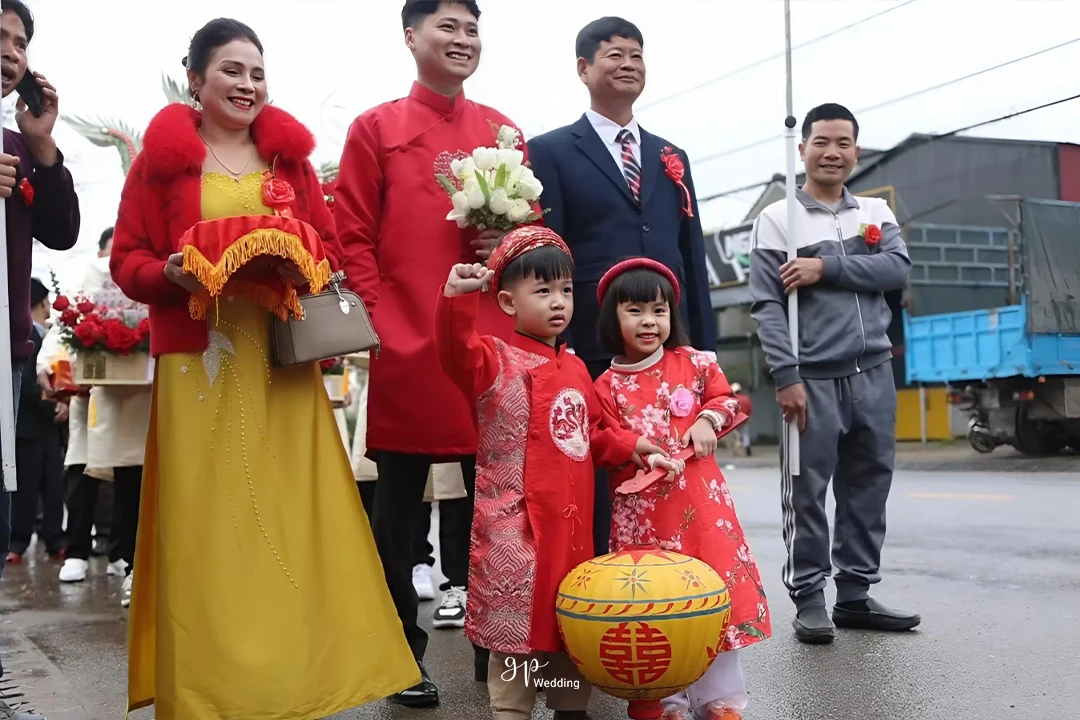
Given the abundance of helpful articles available online, GP Wedding Da Nang will just enumerate the most frequent queries I received from grooms. So, let us begin with me to deep dive in this topic.
1. Explain the meaning of rituals in Vietnamese Wedding
Okay, I understand that Vietnam has many customs, but could you tell me, why are these “traditional Vietnamese wedding cultures,” once more? Do they mean the same thing as weddings in the West?
A standard traditional Vietnamese wedding will consist of (at least) 5 ceremonies, including:
- Dam Ngo
- Dam Hoi
- Ruoc dau
- Don dau
- Vu Quy, or Thanh Hon.
They are all rooted in the past, when parents speak for you (for nearly everything), couples are not permitted to hang out freely, and parents speak on your behalf. Putting aside the well-known arranged marriage, imagine that you have a crush on a girl from a nearby village. Luckily, you can occasionally run into her for casual conversation because your paddy fields are adjacent to one another. You want to ask her out after work because your feelings for her are growing. For dinner, for example.
I’m sorry, it’s not possible.
Boys and girls were not permitted to hang together in the past unless their parents gave their consent. Your parents must get her parents’ permission (in person) before you can go on a date. The name of that meeting is “Dặm Ngõ”. Among the other ceremonies, it is also the least formal in Vietnamese Wedding.
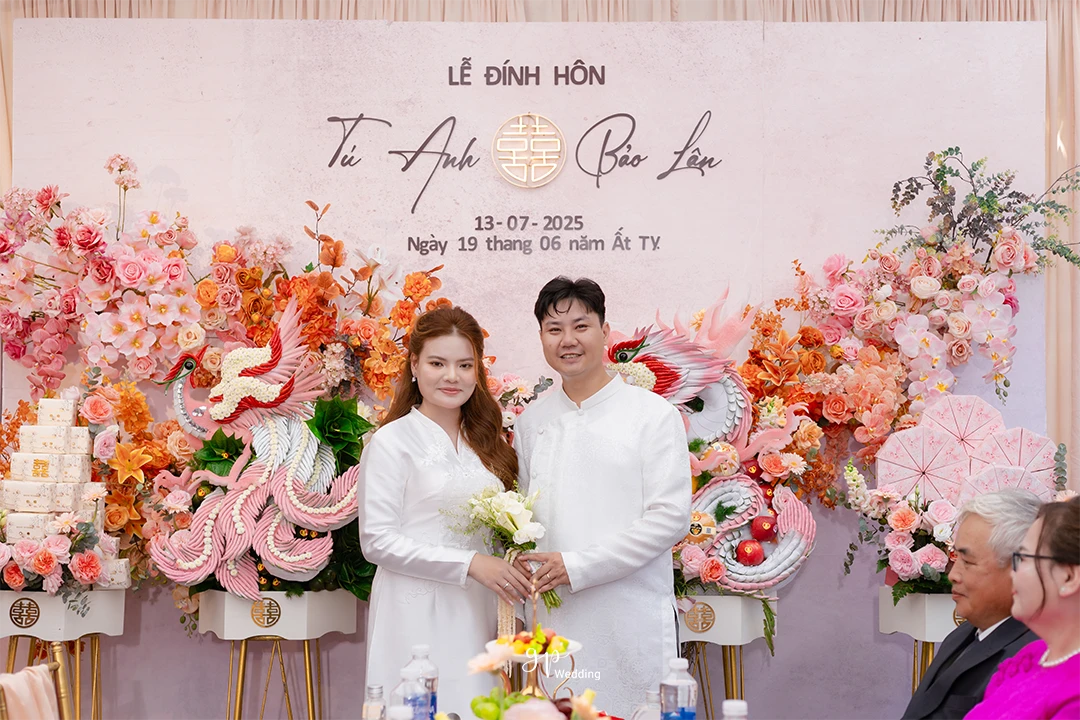
Although you haven’t gotten engaged yet, you will talk about all the conditions and gifts in advance. Marriage is typically seen by families as a way to say goodbye to their daughter. They will therefore make a lot of demands in order to establish your worth. You two will be permitted to hang together if her parents get along with you (I’m sorry, you don’t make decisions) and all the conditions are met.
“Đám Hỏi” will occur shortly after you decide to propose the question because you adore her. Your family invites the bride’s family to marry you in a small, formal gathering. All agreed wedding gifts are brought to the bride’s house, and you are officially engaged after this ceremony. During this ceremony, the date of your wedding is also determined.
On your wedding date, your family revisits the bride’s house to bring your fiancé home. The name of that ritual is “Rước Dâu”. In addition, your home will be tastefully furnished to greet the new wife, which is known as “Đón Dâu”. You are regarded as a married pair until after the Đón Dâu Ceremony. There are two distinct wedding receptions held in each town because you two reside in different communities. One is called “Thành Hôn” in your village, and the other is called “Vu Quy”.
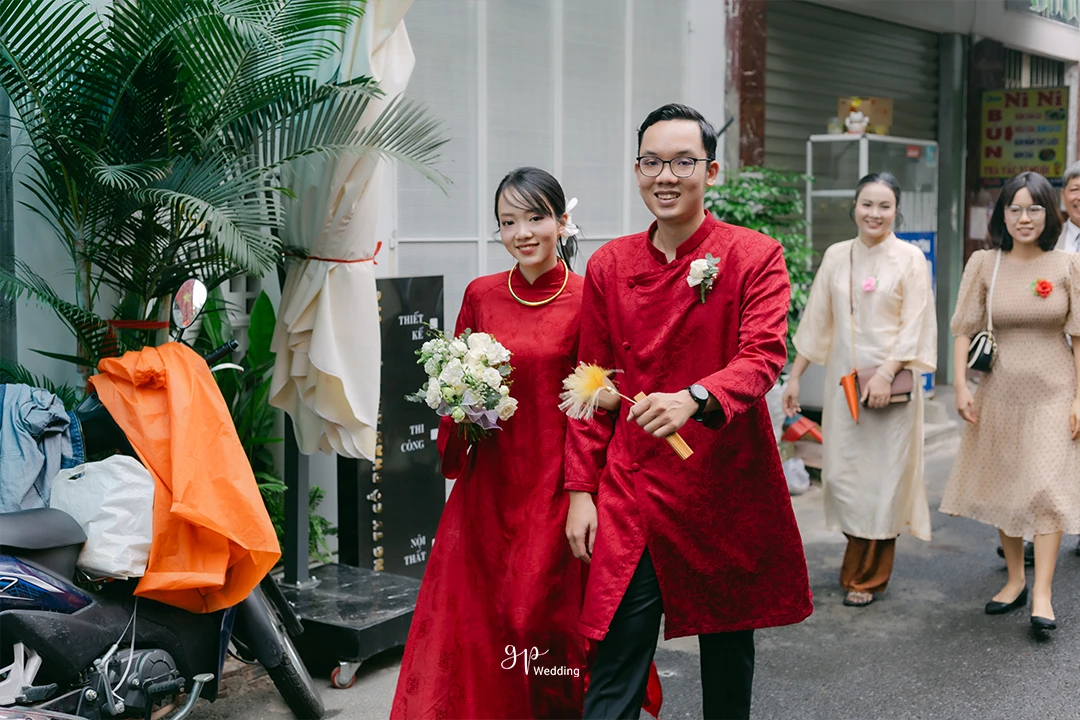
In the Vietnamese Wedding Culture, here are the rituals in short:
- Dạm Ngõ = Your first date (with parents)
- Đám Hỏi = Engagement ceremony
- Rước Dâu = The bride’s farewell
- Đón Dâu = The bride’s welcome
- Thành Hôn = Wedding reception in your city
- Vu Quy = Wedding reception in her city
Even though the majority of Vietnamese customs were greatly impacted by Western culture, they are still observed and are referred to as “morning ceremonies”.
Usually, you are invited to the wedding reception as other ceremonies are kept privately among family members and close friends.
2. The different between wedding organization in North and South of Vietnam
I live in Saigon, and we only have 1 wedding day. What causes my friends who live in Hanoi to have three or even five days in a row?
I suppose you got the answer already if you spend enough time in Vietnam. Southerners are more adaptable and value ease over traditions. Most families will just bypass “Dạm Ngõ” since parents no longer make decisions about dating and marriage (and you are not Vietnamese). “Đám Hỏi” is combined with “Đón Dâu” and “Rước Dâu”. If a family does not own a home, some might skip “Đón Dâu”. So in a single morning, your girlfriend will get engaged, move out, and move in with you. You’re lucky, man. That’s a huge simplification.
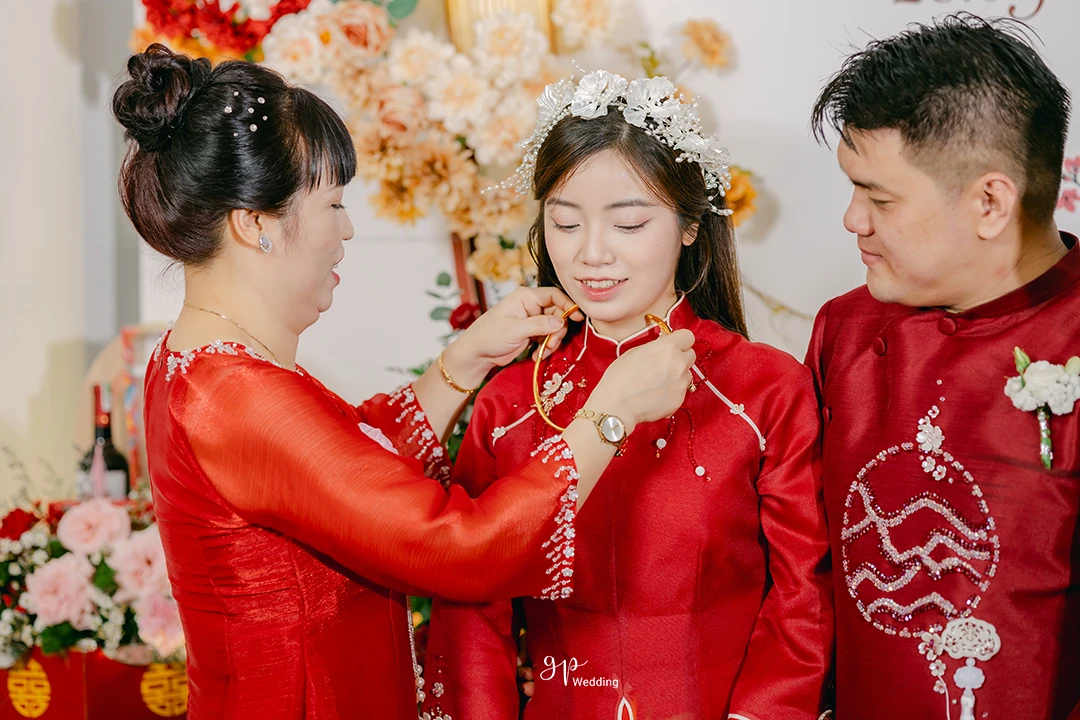
Conversely, Northerners tend to be a little more traditional. In the Vietnamese Wedding Culture of northern people, a Vietnamese wedding must be conducted formally because it is an important event. Therefore, it is frequently regarded as superficial to disregard any of the above norms.
3. Is it important to spend so much time and effort?
This is a challenging question. As a Vietnamese person, I would say the answer is a big “YES,” even though they may sound complicated. In the Vietnamese Wedding Culture, those ceremonies emphasize the bride’s family. Her parents and other family members, who devoted a great deal of time (and money) to raising your fiancé, are honored by these practices. In Western culture, it is just as official as the church or vow ceremony.
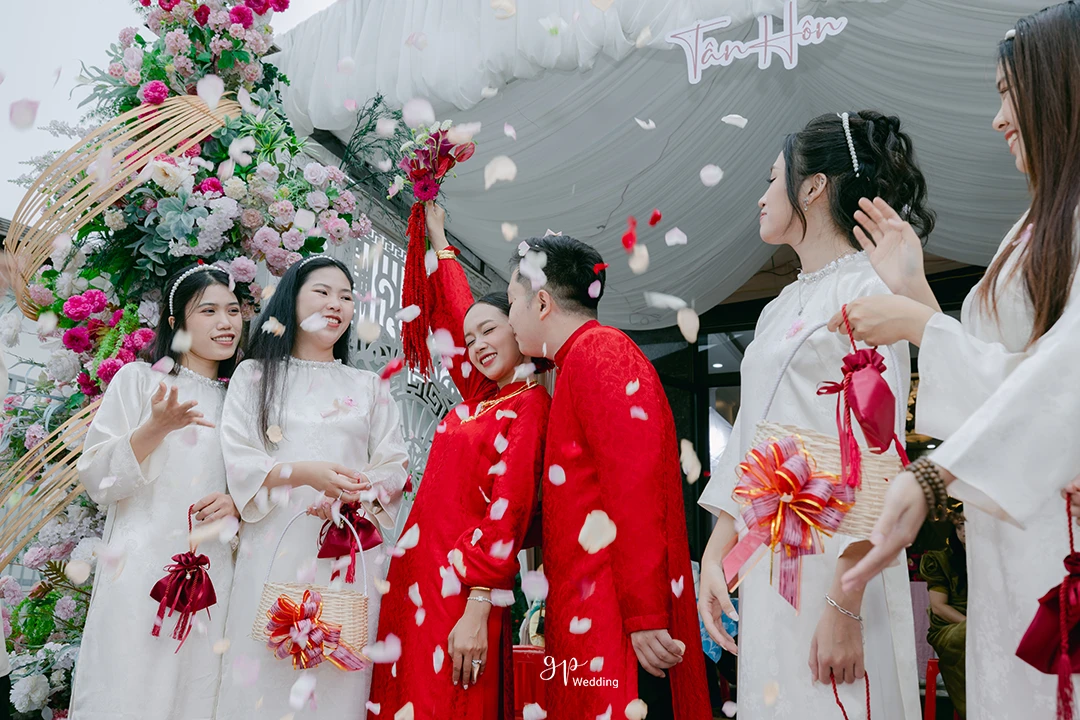
4. They are necessary, I see. It appears that my in-laws take these rituals seriously. Do I need to worry, anyway?
No, not at all. Your in-laws are acting seriously since they don’t know how to treat your relatives, who have to travel to Da Nang or any cities for the wedding. To make them feel more at ease on the wedding day, tell them more about your family.
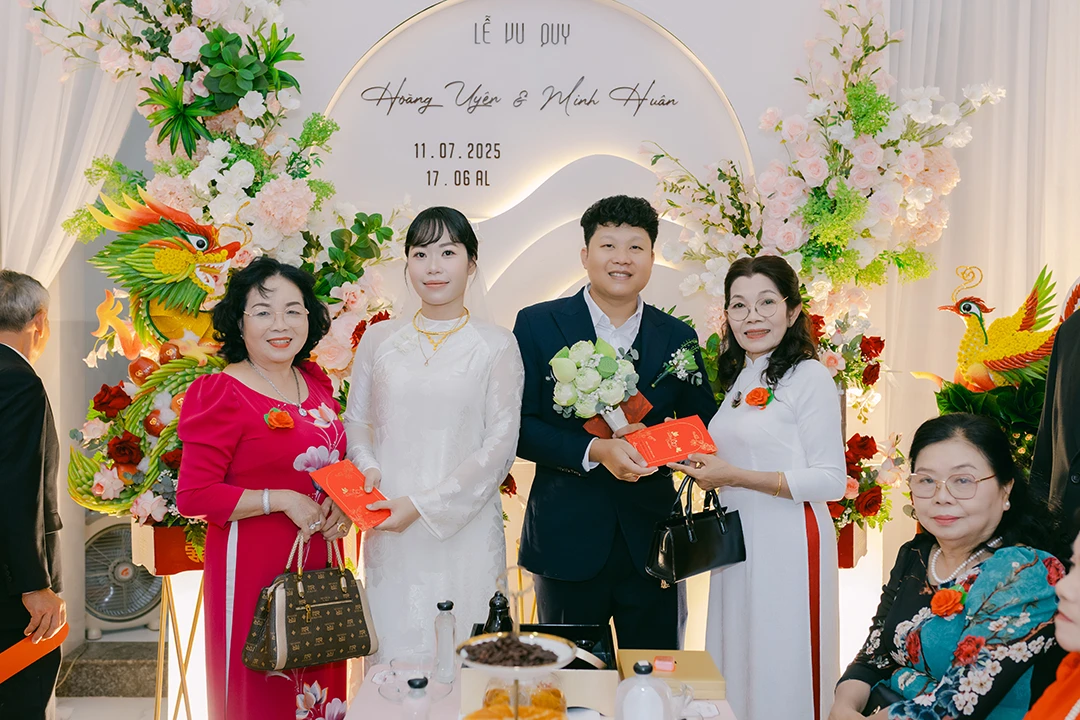
5. Compared to the dinner reception, which one is more important? I see there is a ceremony on the stage as well.
Given that the purpose of the reception is to eat and have fun, the bride’s parents view it as less important than morning ceremonies. It’s basically an announcement to all of your pals during the evening ceremony. As a result, you can apply (nearly) any concept you have and customize the application to your liking.
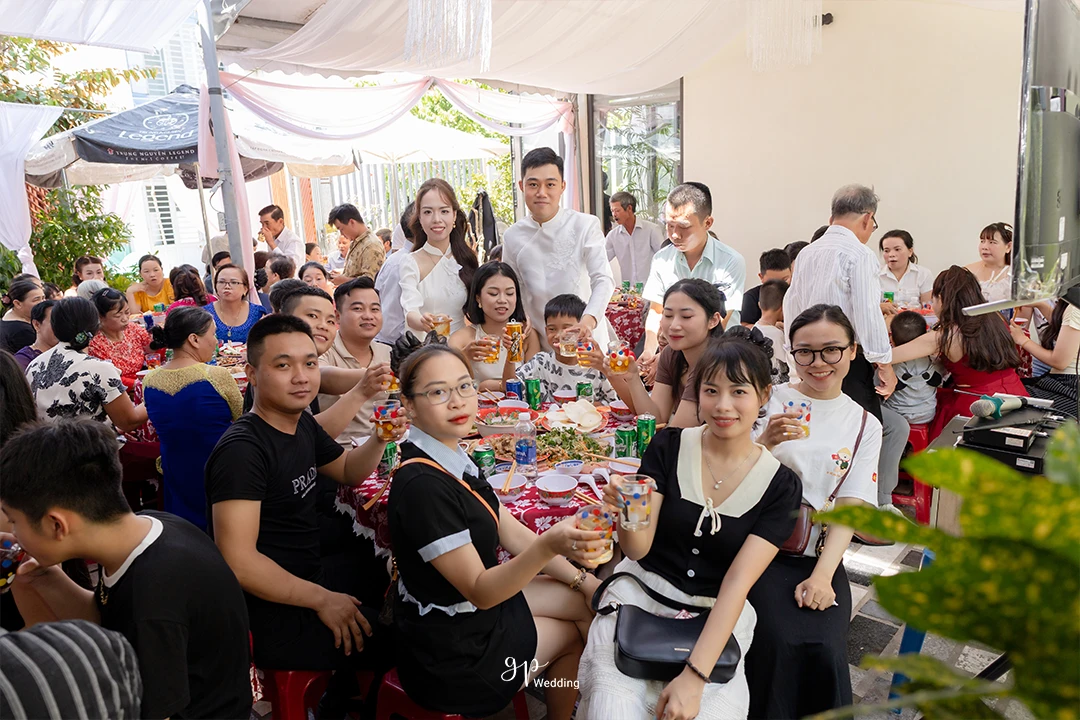
6. Does a Buddhist wedding in Vietnam differ from a Catholic wedding?
In Da Nang or any cities in Viet Nam, Buddhist and Catholic weddings are identical, with the exception that Catholic brides must attend an additional church ceremony, making six consecutive events.
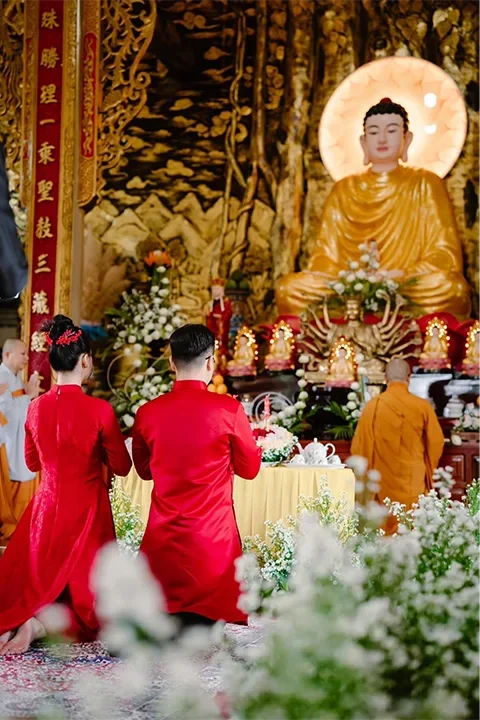
7. What is the moment that the couple considered married?
After exchanging rings at Đón Dâu, you are considered married. Soon after, the bride’s family representative will serve as a celebrant to declare you husband and wife. If it is suitable, you can give the bride a kiss.
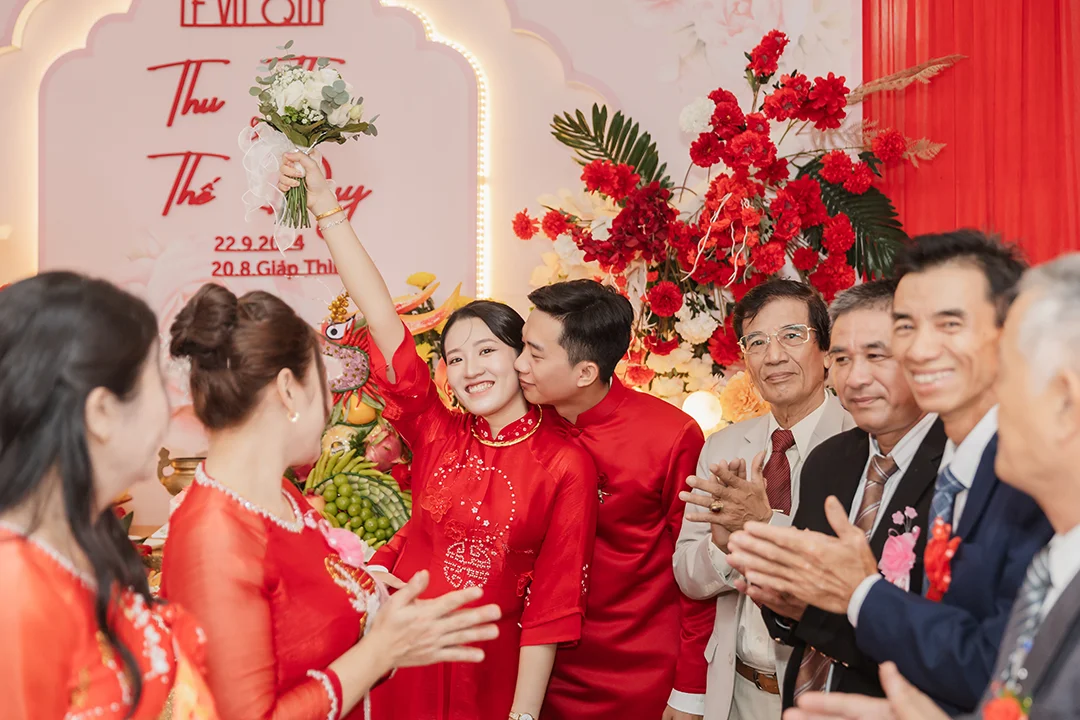
8. I notice a lot of (sometimes costly) offerings made by people; is this a legally recognized bride price?
It used to be forbidden for brides to go back to their home. It is your duty to provide for her family’s wedding costs as this implies that they lose valuable labor. Offerings are now only customs that show the bride’s family how much you value them. In Modern Vietnamese wedding culture, Presents don’t have to be costly, but they should be thoughtfully crafted and beautifully presented to demonstrate your consideration.
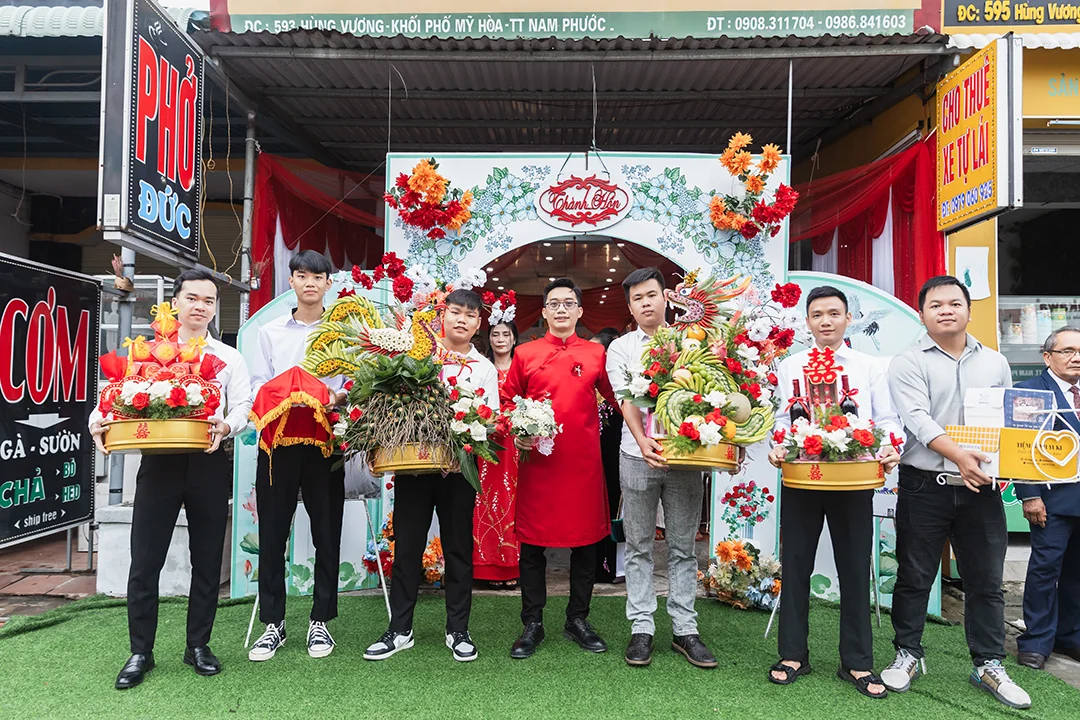
9. Do people find my low-cost offerings offensive? And what does “cheap” mean?
In Vietnamese wedding culture, the majority of offerings are accepted, unless you are marrying a wealthy woman. You ought to be mindful of the jewelry your parents present to the bride. Let your fiancé handle this; she is capable of handling it.
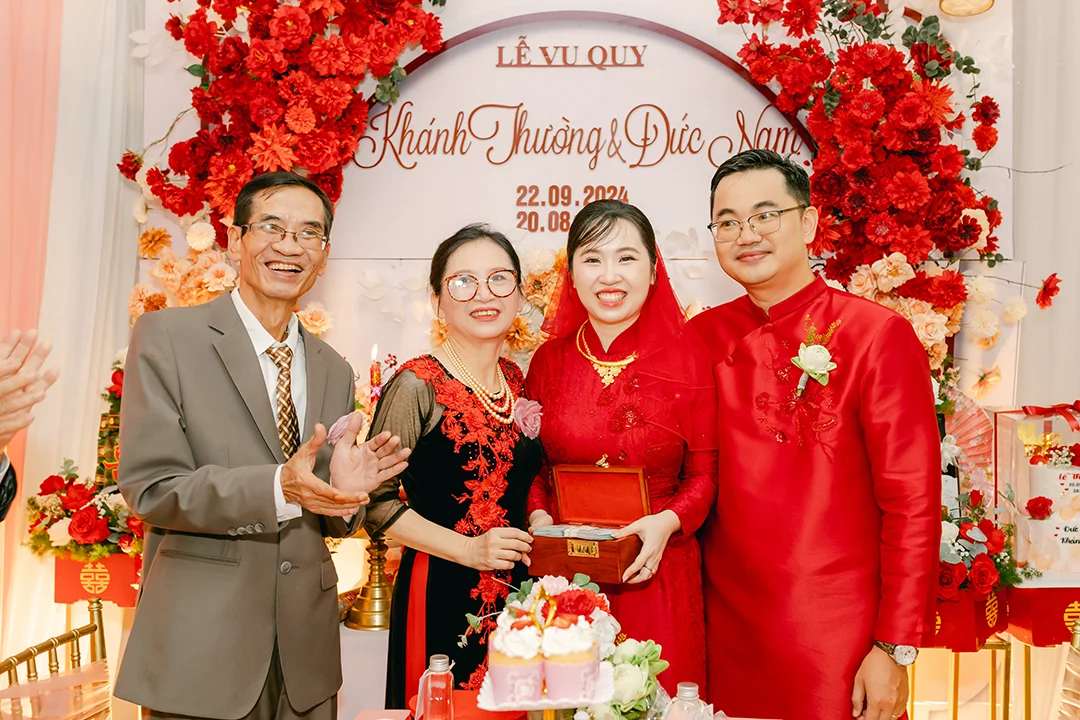
General Summary
The above are questions that many foreign friends will often encounter in the process of learning about Vietnamese wedding culture. GP Wedding Da Nang hopes that these answers will help readers better understand Vietnamese culture and prepare for a dream wedding. If you are looking for the best wedding photojournalism team, instantly send a message to our Facebook or Website for advice and to book a photoshoot as soon as possible.
Articles you may be interested in:
1. The Perfect Wedding Plan Checklist in 12 months – GP Da Nang Wedding
2. Perfect Time for Dream Wedding in Vietnam – GP Da Nang Wedding
3. 10 Essential Tips for Your Perfect Wedding Day in Da Nang – GP Da Nang Wedding
4. 5 Tips For Planning a Wedding After-Party – GP Da Nang Wedding
5. 2 Tips for Planning a Perfect Wedding in Rainy Season in Da Nang – GP Da Nang Wedding


